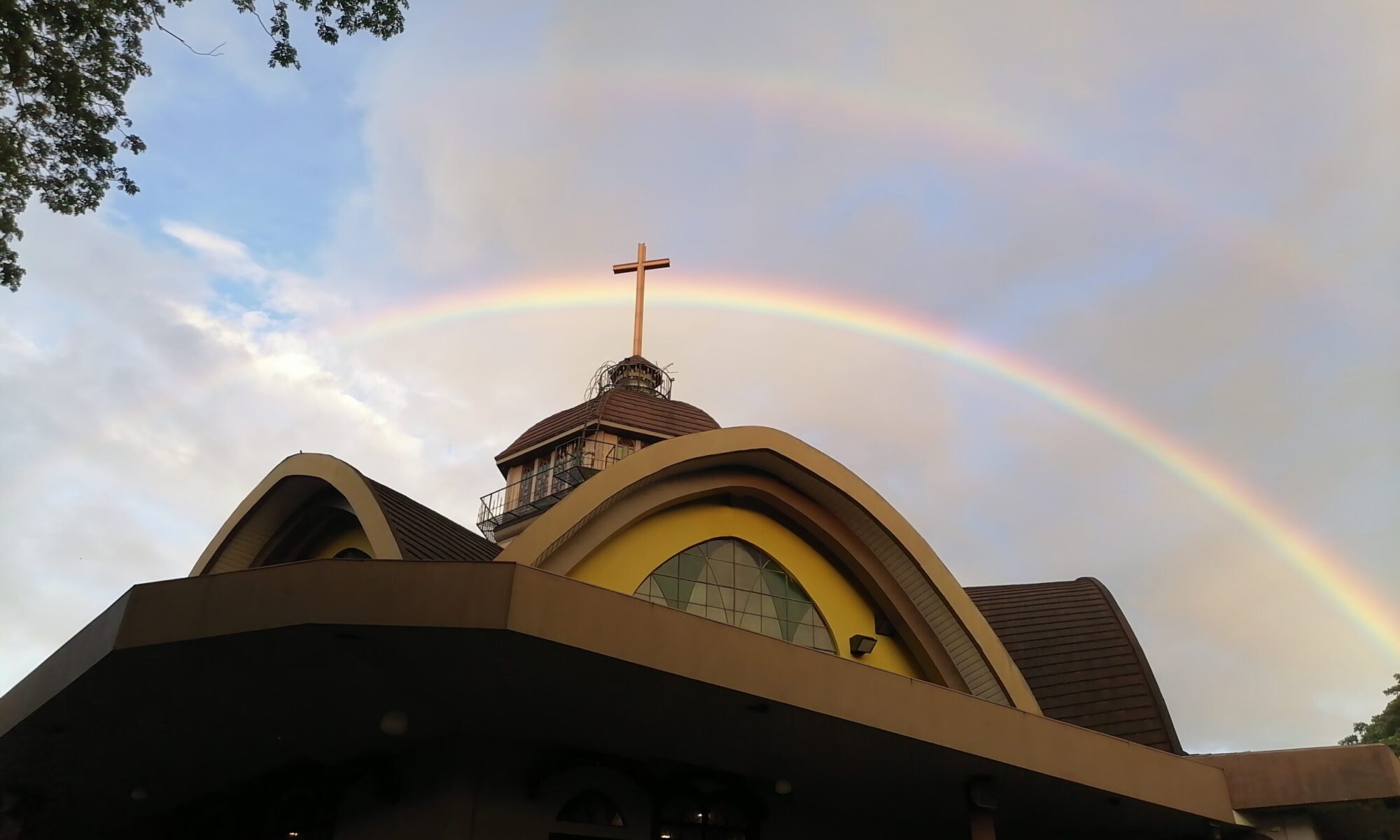 We have not tired of saying that the Catholic Religion is a revealed religion. It is a supernatural religion and, therefore, cannot be learned by man using his natural faculties. But it can be learned by man if he elevates himself to the supernatural level. Which is impossible unless he is aided by grace. And God had promised superabundant graces to enable man to do so. So man, to learn the Catholic Faith must elevate himself through the theological virtues of Faith, Hope and Charity.
We have not tired of saying that the Catholic Religion is a revealed religion. It is a supernatural religion and, therefore, cannot be learned by man using his natural faculties. But it can be learned by man if he elevates himself to the supernatural level. Which is impossible unless he is aided by grace. And God had promised superabundant graces to enable man to do so. So man, to learn the Catholic Faith must elevate himself through the theological virtues of Faith, Hope and Charity.
Pope Benedict demonstrated this classical way of learning the Faith by issuing first the Catechism of the Catholic Church and secondly by writing his first encyclical on Charity. To be a good Catholic we must first know all the truths of the Catechism. Of course, we won’t understand most of the truths there. That’s all right. Just believe even if you do not understand. Then read the Deus Caritas Est and put it into practice. You will note that as you gradually grow in Charity, you will grow in your knowledge and understanding of the Catechism. Your knowledge won’t be superficial. It will be deep. Thus the axiom, believe that you may understand.
A deeper knowledge of the Catechism is acquired not by studying but by practicing Charity, which is, the commandment of the Lord to love God and neighbor. The consequence of growing in Charity is a deeper knowledge of the Catechism.
Even before Faith God usually gives us the initial seed of Charity. This grace, if we will it, is what makes us deserving of the infused virtue of Faith. And the theological virtue of Faith, not theological courses, is what will enable us to go deeper into the knowledge of the truths of the Catholic Religion.
As the seed of Charity grows in us it makes us deserving of the theological virtue of hope where our understanding of the Catholic Faith becomes greater. As Charity grows into its perfection then we become deserving of Wisdom, wherein God reveals Himself to us.
St. Therese of the Child Jesus who showed outstanding knowledge of Love or Charity, mentioned that she did not learn this from any books or studies but directly from God. And yet her theology was perfect and could put any doctor of theology to shame. St. Francis de Sales compared the learning of William of Ockham, a known theologian of his time, to that of St. Catherine of Genoa thus: William’s came from study while Catherine’s from God.
How do we learn the Catholic Faith? Not from books nor teachers. But by losing one’s life, “He who loves his life will lose it and he who loses his life for my sake will find it.” We learn by living a way of life of self denial.
Scriptures described this manner of learning the Catholic Faith in many ways. Why we got it all wrong is bewildering. Christ, Himself, did not tell us to study Moral and Dogmatic theology, nor apologetics or Church History. He said to learn from Him ‘humility and meekness.’ Our knowledge of the things of God will depend on the degree of our humility and meekness and not on how many books we have read or how many degrees on theology we have acquired.
Let me put it another way. Our knowledge of Divine things will depend on how much we have experienced the goodness of God. We can read a whole tract on theology without learning anything on the goodness of God. And yet we can look at a sunset and experience the goodness of God. The brief encounter with the sunset could be more spiritually beneficial than a whole course in theology. That is how St. Catherine of Genoa was more informed about divine things than William of Ockham, as St. Francis of Sales noted.
Thus in Catholicism, meditation is thinking and learning the goodness of God. Meditation is not merely the meandering of one’s thought on religious topic. Everytime we discover the depth of the goodness of God, we should react by loving Him. As our Love for God increases, our knowledge of the truths in the Catechism and on Divine things increase. When we meditate on God’s goodness and suddenly find outselves face to face with His goodness, we fall in love with God — this is contemplation. The reaction of the will is to love God — this is Charity.

